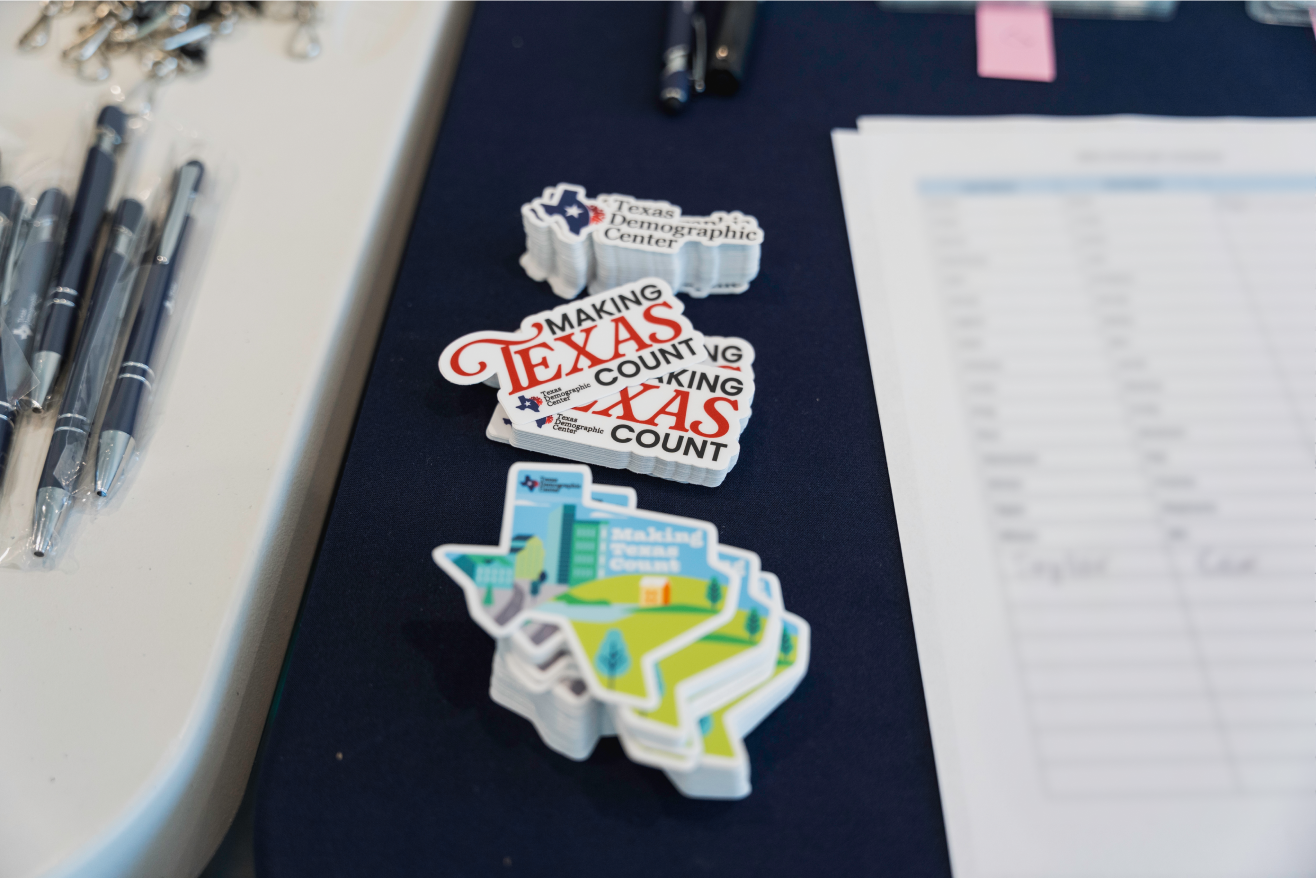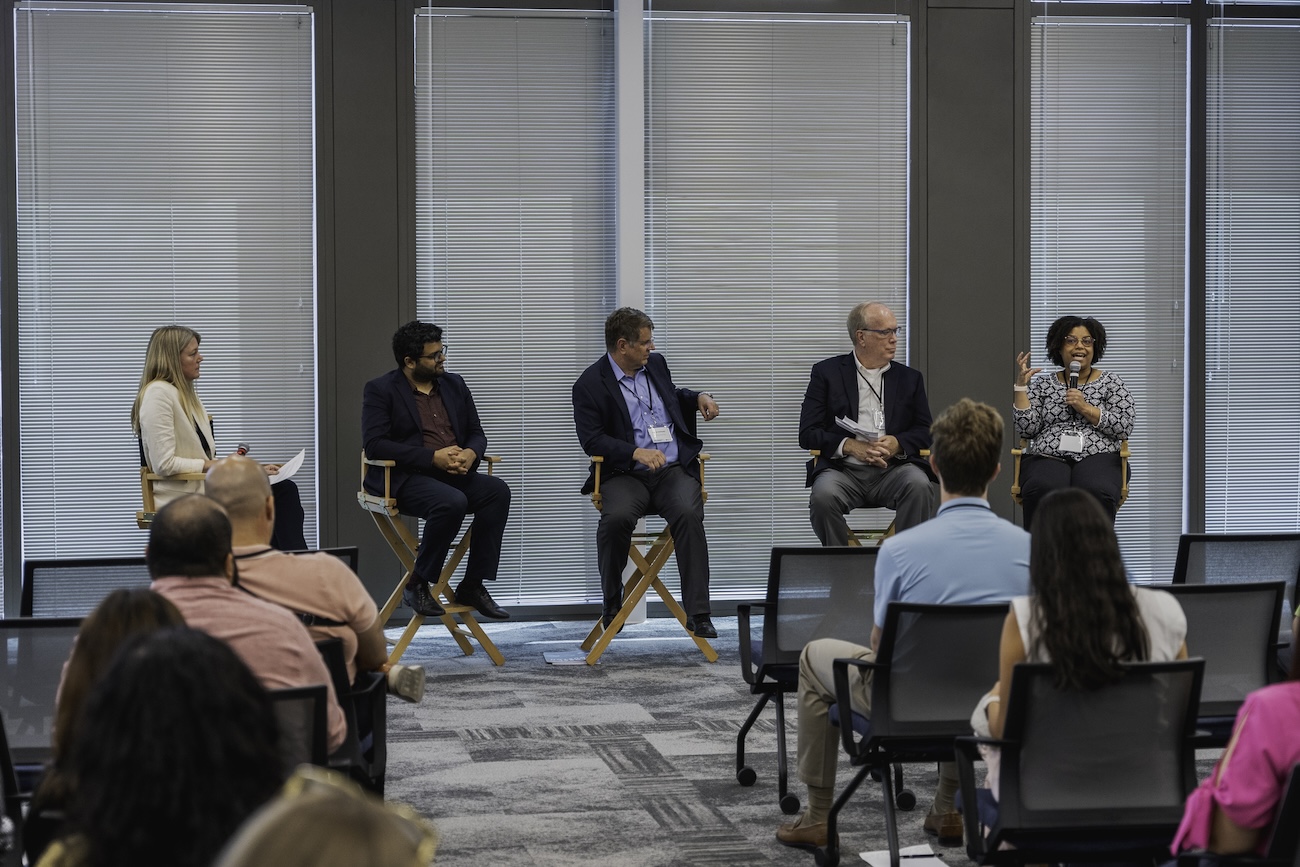Diana Elliott
Senior Vice President, Programs

June 27, 2024
Senior Vice President, Programs
This year, the U.S. Census Bureau and PRB launched “ACS on the Road” events to meet data users in their communities, share information, and learn more about needed support. Our first event was in Austin, Texas, on May 29, 2024, at the Texas Demographic Conference, hosted by the Texas Demographic Center.
The American Community Survey (ACS) has become a lifeline for a range of data users—including those working in government, business, academia, and nonprofits—who rely on its comprehensive data to better understand their communities. But are those data users aware of all the ACS resources available to them? While the U.S. Census Bureau offers a host of resources to help data users—whether that’s an online community (managed by PRB), instructional handbooks and webinars, or trainings—it’s unclear how many ACS data users know about them and whether the materials meet their needs. And that’s what we went on the road with the ACS to find out.
As the saying goes, “everything’s bigger in Texas,” and the successful event offered important insights from data users about how the ACS improves their work and the support they need.

Sign-in for the ACS on the Road session in Austin came with Making Texas Count stickers.
One of the highlights of the day was a panel entitled, “The ACS in Texas,” moderated by Angela Broyles, Executive Director of the Texas Census Institute, featuring data users from across Texas who use the ACS to advance their missions:

Panelists of ACS data users in Texas, from left to right, included Angela Broyles; Awais Azhar; Patrick Jankowski; Lonnie Hunt; and Holly Heard.
Each panelist emphasized how critical the data are for describing the status of communities in Texas and the demographics and well-being of residents.
Audience members also reported diverse uses of the ACS, including monitoring workforce development metrics, health insurance coverage, and measures of child poverty and well-being. The ACS plays a vital role in helping data users across sectors answer up-to-date questions on a host of topic areas for a range of communities and populations.
We met data users who used the ACS rarely and others who used it frequently to apply sophisticated analytical techniques. The needs of data users with such different experiences are very different.
During small breakout conversations, we learned that novice data users may rarely use the ACS to find an estimate and are instead often using data.census.gov. In contrast, expert data users may be interacting with ACS data directly via MDAT and tidycensus applications to pull data more regularly for their work. This means that to best support a variety of data users, materials ranging from introductory flyers to technical trainings are needed to support their needs.
Data users were interested to learn more from U.S. Census Bureau staff about upcoming plans to test sexual orientation and gender identity (SOGI) questions in 2025, as well as about future federal changes to the race and ethnicity standards. They intently watched a demonstration of new features available to them to explore ACS data in data.census.gov and asked follow-up questions about how they can apply these features to their own work. Breakout groups revealed that data users often have challenges finding what they need, and they had specific suggestions to improve navigability, better disseminate information, and create new resources that could help make their interactions with the ACS data more efficient and productive.

A man in audience raises his hand to ask a question during the ACS on the Road session in Austin.
The data users and Census staff in attendance shared a deep appreciation for the ability to meet in person at the event and connect about ACS data. The Texas event solidified the Census Bureau’s commitment to plan future events in other cities to meet one-on-one with data users who rely on the ACS. The only way to learn what’s needed is to truly engage with those using the data, and the event was an important step toward realizing this goal.
Next up: Salt Lake City!
Stay tuned for more information as we plan our next ACS on the Road event later this year—sign up for our newsletter.
Watch the full presentation below. Presentations slides are also available (in PDF format) on the Texas Demographic Conference website.
